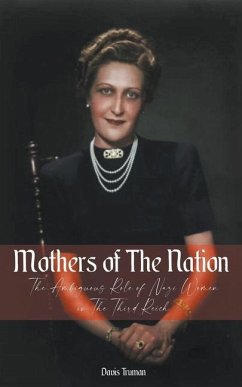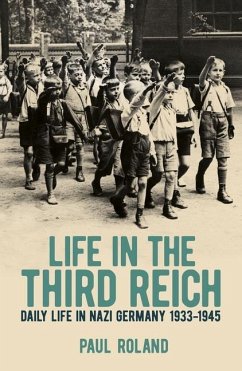
Mengele and Nazi Doctors During the Third Reich Children's Experiments and the Racial Utopia for Opportunity and Careerism

PAYBACK Punkte
6 °P sammeln!
The experiments conducted during World War II provide some of the most extreme examples of human rights and ethics breaches the world has so far seen. There is no benefit in considering the Nazi experiments as "other" or irrelevant. The greatest good that can come out of these atrocities is the lessons they have to teach about what plays into and creates a hostile research environment. Before the rise of Hitler and the Nazi party, Germany was at the forefront of medical research and medical ethics. The rise of the National Socialist movement led to a moral decline in physicians' perception of ...
The experiments conducted during World War II provide some of the most extreme examples of human rights and ethics breaches the world has so far seen. There is no benefit in considering the Nazi experiments as "other" or irrelevant. The greatest good that can come out of these atrocities is the lessons they have to teach about what plays into and creates a hostile research environment. Before the rise of Hitler and the Nazi party, Germany was at the forefront of medical research and medical ethics. The rise of the National Socialist movement led to a moral decline in physicians' perception of their professional identity. This was reinforced by concepts like "lives not worth living," which was often repeated in Nazi propaganda and played a central role in justifying the atrocities committed under the Nazi regime. The Nazi era in general, and the behavior of Nazi doctors in particular, show that despite a general historical progression toward greater humanity, egregious regressions and moral backsliding have occurred.














